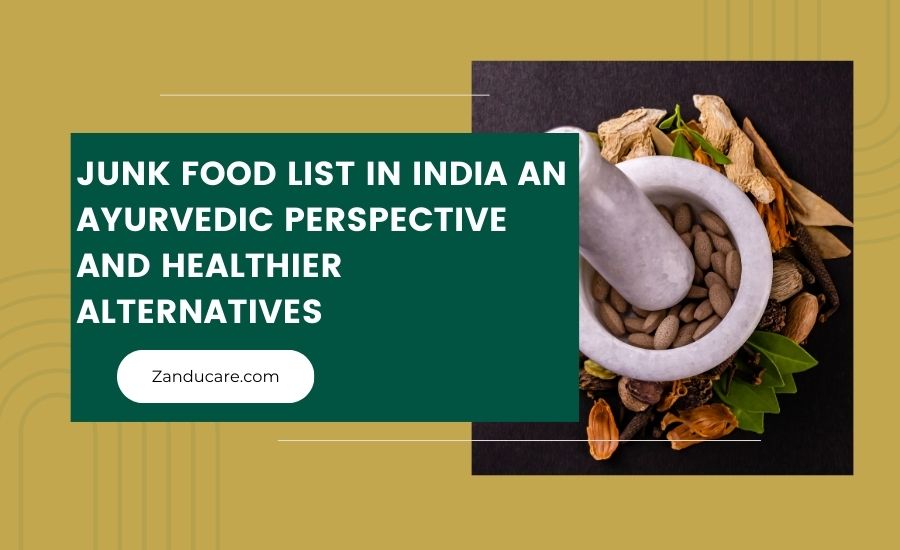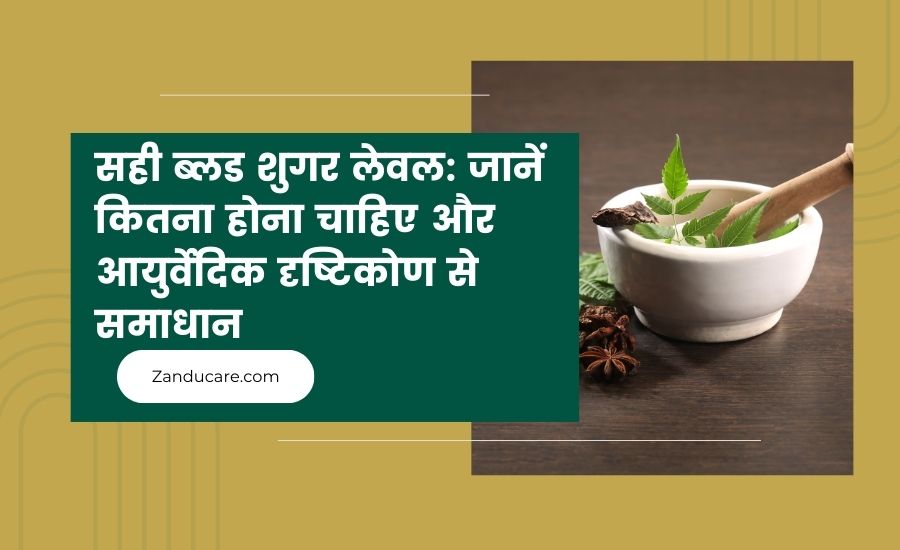
Junk Food List in India: An Ayurvedic Perspective and Healthier Alternatives
In recent years, junk food consumption in India has skyrocketed. Everywhere you look, there's a tempting array of chips, sodas, and sweets that are hard to resist. While these snacks might satisfy your taste buds, they often come with a hidden cost to your health. That’s why it's crucial to understand how these foods impact our bodies, leading to issues like obesity, diabetes, and heart problems.
Ayurveda, the ancient Indian system of medicine, offers a unique perspective on food and health. It emphasises balance and natural ingredients, promoting overall well-being. By exploring junk food through an Ayurvedic lens, we can learn about its negative effects and discover healthier alternatives that nourish both body and mind. Let's dive into the world of junk food in India and uncover how small changes can lead to a healthier lifestyle.
|
Did you know?
|
What is junk food?

Foods rich in calories but lacking in nutrients are called junk food. These foods are pleasant but bad for your health since they are frequently high in sugar, salt, and bad fats. Fast food, sweets, chips, and sugary drinks are typical examples.
Junk food is typically processed and deficient in nutrients like fibre, vitamins, and minerals. Excess salt can raise blood pressure, while a high sugar level can cause energy spikes and crashes. Furthermore, trans fats and other bad fats are linked to obesity and heart disease.
Junk food is often the source of cravings because it is quick to consume and filling. However, frequent consumption can result in weight gain, diabetes, and heart difficulties, among other health problems. For your health and a balanced diet, it's critical to consider your options and choose better options wherever possible.
Popular junk foods in India
Some foods or ingredients are most frequently used to prepare our favourite junk food items. While they add flavour to the dish, they can also harm your health. The following is a list of some Indian cuisine items.
Garlic naan
One of the best sides for any Indian meal is a real garlic naan. However, because it is so high in calories, it is not the best Indian dish to eat. A single garlic naan has 385 calories and 65 grams of carbs.
If you are on a low-carb or weight-watching diet, avoid garlic naan. Instead, go for basic naan bread. With only 260 calories and 42 grams of carbs, it is still delicious despite having fewer calories.
Medu vada

Medu vada is one of the most popular South Indian foods. Black grams are essentially used to make these vadas. Kala chana, or black grams, are high in protein. Even yet, your body often finds it challenging to break down protein. As a result, it modifies the digestive process and results in specific health issues. Moreover, these vadas comprise 334 calories per plate due to their deep-frying in oil.
Potato chips
Though they may appear harmless and are widely consumed, potato chips can significantly negatively impact eating habits. A handful of mixed nuts or baked vegetable chips might make a tasty and healthy substitute. So consider the effects on your health the next time you reach for a bag of potato chips.
Pizzas
Although pizza is one of the foods that adults and children enjoy eating, it is bad for your health. This is due to the potential cancer risk associated with refined wheat and processed meat toppings like pepperoni, bacon, and hot dogs used in pizza.
Ice creams and frozen yoghurt
Frozen yoghurt and ice cream typically have a lot of fat and are made with refined sugar, artificial flavours, and additives. Consuming additional sugar is frequently associated with health problems such as heart disease, type II diabetes, fatty liver, dental cavities, and increased body weight.
Low carb-refined food
A diet low in carbohydrates includes highly processed foods like cookies and cheddar cheese crackers. There are conflicting studies on these foods. According to several studies, a low-carb diet may be beneficial for controlling weight, heart problems, and insulin levels. Other research, however, finds no connection between eating a highly processed diet and improved health. As such, their role in chronic illness remains unclear.
Health impact of junk food
Weight Gain and Obesity
- Junk food is high in calories, unhealthy fats, and sugars.
- Consuming these foods regularly leads to excessive calorie intake.
- The body stores extra calories as fat, causing weight gain and obesity.
Heart Disease
- Junk food contains high levels of unhealthy fats, particularly trans fats and saturated fats.
- These fats increase bad cholesterol (LDL) and decrease good cholesterol (HDL).
- This imbalance clogs arteries and raises the risk of heart disease and stroke.
Diabetes
- High sugar content in junk food spikes blood sugar levels.
- Frequent sugar spikes cause insulin resistance, leading to type 2 diabetes.
- Consistent consumption of sugary foods burdens the pancreas, impacting insulin production.
Digestive Problems
- Junk food lacks fibre, which is essential for healthy digestion.
- Low fibre intake leads to constipation and poor gut health.
- Processed foods can disrupt the balance of good bacteria in the gut, causing digestive issues.
Nutrient Deficiency
- Junk food lacks essential nutrients like vitamins, minerals, and antioxidants.
- Regular consumption of junk food can lead to nutrient deficiencies.
- These deficiencies weaken the immune system, making the body prone to illnesses.
Mental Health Issues
- Diets high in junk food can impact mental health.
- Poor nutrition affects brain function and mood regulation.
- Studies link high junk food consumption to depression, anxiety, and cognitive decline.
Addiction and Cravings
- Junk food's high sugar and fat content can create addictive eating behaviours.
- The brain releases dopamine when consuming junk food, leading to cravings.
- These cravings can result in overeating and difficulty controlling food intake.
Dental Problems
- Sugary junk foods contribute to tooth decay and cavities.
- Sugar feeds harmful bacteria in the mouth, producing acids that erode tooth enamel.
- Frequent consumption of sugary snacks and drinks leads to poor oral health.
Also , do check our related guide on:
Ayurvedic perspective on junk food

From an Ayurvedic perspective, junk food disrupts the body's natural balance. Ayurveda emphasises the importance of consuming fresh, wholesome foods that align with one's dosha (body constitution) – Vata, Pitta, or Kapha. Junk food, processed and loaded with sugar, salt, and unhealthy fats, does not provide the essential nutrients the body needs.
Ayurveda views junk food as tamasic (inert) and rajasic (overstimulating), which can lead to lethargy, agitation, and imbalance in the body and mind. These foods create ama (toxins) in the body, which can block the channels and disrupt digestion, leading to various health issues like obesity, diabetes, and heart disease.
Ayurveda encourages replacing junk food with sattvic (pure and balanced) foods such as fresh fruits, vegetables, whole grains, and nuts. These foods nourish the body, promote mental clarity, and maintain the balance of the doshas, leading to overall health and well-being.
Comparison table: Junk food vs. healthier alternatives
|
Junk Food |
Healthier Alternatives |
Benefits of Healthier Alternatives |
|
Chips |
Baked sweet potato or kale chips |
Lower in unhealthy fats, higher in vitamins and fiber |
|
Candy |
Fresh fruits or dried fruits |
Natural sugars, vitamins, minerals, and fiber without added sugars |
|
Soda |
Sparkling water with lemon or lime |
No added sugars, hydrating, and provides vitamins from fresh fruit |
|
Fast Food Burgers |
Grilled chicken or veggie burgers |
Lower in unhealthy fats, higher in protein, vitamins, and minerals |
|
French Fries |
Baked sweet potato fries |
Lower in unhealthy fats, higher in fibre, vitamins A and C |
|
Ice Cream |
Greek yoghurt with honey and berries |
Lower in added sugars, higher in protein, probiotics, and antioxidants |
|
Pizza with Pepperoni |
Whole grain pizza with vegetables |
Higher in fibre, vitamins, and minerals, lower in unhealthy fats |
|
Chocolate Bars |
Dark chocolate with nuts |
Lower in added sugars, higher in antioxidants and healthy fats |
|
Pastries |
Whole grain muffins with fruits |
Higher in fibre, vitamins, and lower in added sugars and unhealthy fats |
|
Sugary Breakfast Cereals |
Oatmeal with nuts and fruits |
Higher in fibre, protein, vitamins, and minerals, with no added sugars |
|
Processed Meat Snacks |
Nuts, seeds, or roasted chickpeas |
High in protein, healthy fats, and fibre, without unhealthy preservatives |
|
Energy Drinks |
Green tea or herbal tea |
Natural energy boost, antioxidants, no added sugars |
|
Instant Noodles |
Whole grain noodles with vegetables |
Higher in fibre, vitamins, and minerals, with no unhealthy preservatives |
|
Cookies |
Homemade oatmeal cookies |
Lower in added sugars and unhealthy fats, higher in fibre and nutrients |
|
Deep-fried Snacks |
Air-popped popcorn or roasted nuts |
Lower in unhealthy fats, higher in fibre and healthy fats |
Conclusion
Limiting junk food consumption is essential for preserving health. Junk food's high sugar, salt, and bad fat content cause weight gain, heart disease, and other health problems. Selecting more nutritious Ayurvedic substitutes enhances digestion, fosters mental clarity, and supplies vital nutrients. Nuts, whole grains, fresh produce, and fruits are healthier choices that follow Ayurvedic principles. Consuming these healthful foods as part of a balanced diet improves general well-being, maintains bodily equilibrium, and wards off chronic illnesses. To ensure a healthier tomorrow, start making better decisions today.
FAQs
1. What are the most popular junk foods in India?
India's most popular junk foods include samosas, pakoras, vada pav, chips, chocolates, sugary drinks, and instant noodles. These foods are loved for taste and convenience but are high in unhealthy fats, sugars, and salt.
2. How does junk food affect health?
Junk food negatively impacts health by causing weight gain, heart disease, diabetes, and digestive issues. High in unhealthy fats, sugars, and salt, junk food leads to poor nutrition, energy crashes, and increased risk of chronic illnesses.
3. What is the Ayurvedic view on junk food?
Ayurveda views junk food as tamasic (dull) and rajasic (overstimulating), which disrupts the body's balance and creates toxins (ama). These foods negatively affect digestion, energy levels, and mental clarity. Ayurveda promotes fresh, sattvic (pure) foods for overall well-being.
4. Can you suggest healthy alternatives to junk food?
Healthy alternatives to junk food include fresh fruits, vegetables, whole grains, nuts, seeds, and homemade snacks. For example, replace chips with baked sweet potato fries and sugary drinks with herbal teas or coconut water.
5. Why should I switch to healthier alternatives?
Switching to healthier alternatives helps maintain a balanced diet, provides essential nutrients, and reduces the risk of chronic diseases. Healthier foods improve digestion, energy levels, mental clarity, and overall well-being, leading to a healthier lifestyle.
6. How can I make healthier versions of my favourite junk foods?
You can make healthier versions of your favourite junk foods by using fresh, wholesome ingredients and cooking methods like baking or grilling instead of frying. For instance, bake homemade veggie chips, use whole grain flour for pastries, or make smoothies with fresh fruits instead of sugary drinks.
References
- Junk food is high in calories, unhealthy fats, and sugars.(https://d1wqtxts1xzle7.cloudfront.net/)
- Junk food contains high levels of unhealthy fats, particularly trans fats and saturated fats.(https://www.sciencedirect.com)





Leave a comment
This site is protected by hCaptcha and the hCaptcha Privacy Policy and Terms of Service apply.